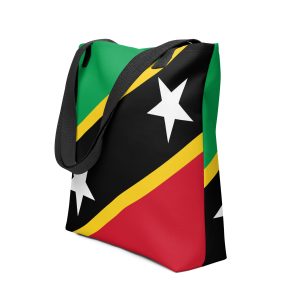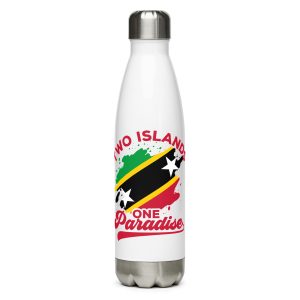1650s – The Rise of Sugar Plantations in St. Kitts and Nevis
The 1650s were a turning point for St. Kitts and Nevis, as sugar cane cultivation became the main economic driver. This transformation reshaped the islands’ economy and society, making them key British colonies in the Caribbean.
The Introduction of Sugar Cane
Although sugar cane was first brought to the Caribbean by the Spanish and Portuguese, it was the Dutch who helped spread the sugar industry to English and French colonies. After fleeing Portuguese Brazil in the 1640s, Dutch planters introduced advanced sugar production techniques to the English Caribbean, including St. Kitts. By the 1650s, sugar plantations were quickly replacing tobacco farms as the dominant economic force .
Sugar was highly profitable, but its cultivation required extensive land and labor. As demand for sugar grew in Europe, St. Kitts and Nevis became central to the booming trade, establishing large plantations that would define the islands’ economy for centuries. By the late 17th century, St. Kitts had become one of the most prosperous sugar producers in the Caribbean .
The Plantation System and Enslaved African Labor
The rise of sugar plantations was closely linked to the transatlantic slave trade. The labor-intensive nature of sugar production required a large workforce. Initially, European indentured servants were used, but the demands of the sugar industry soon exceeded what they could provide. Planters turned to enslaved Africans to meet their labor needs.
By the mid-1600s, enslaved Africans began to outnumber European settlers on the islands. As sugar production expanded, so did the brutal system of slavery. Enslaved Africans were forced to work long hours under harsh conditions, with violence and punishment used to maintain control. The life expectancy of enslaved workers was tragically short due to the grueling nature of the work .
This plantation system created a rigid social hierarchy, with white planters at the top and enslaved Africans at the bottom. This structure shaped life on St. Kitts and Nevis for generations, as the wealth from sugar continued to enrich the British Empire at the expense of African lives .
Economic Transformation
Sugar quickly became the most valuable export from St. Kitts and Nevis. The islands’ economy became almost entirely dependent on this single crop. The plantations needed a large labor force and significant infrastructure, including sugar mills and ports. Towns like Basseterre grew as important hubs for trade with Britain and Europe .
The planter class, enriched by sugar, gained significant political influence both locally and abroad. St. Kitts became one of Britain’s wealthiest colonies, but its success was built on the backs of enslaved Africans, whose forced labor was the foundation of the entire economy .
Environmental and Social Impacts
The expansion of sugar plantations led to large-scale deforestation as land was cleared for cultivation. This caused soil depletion and changed the island’s landscape, with lasting environmental effects.
Socially, the reliance on enslaved labor created deep divisions. The enslaved African population endured extreme exploitation, but they preserved aspects of their culture, religion, and social systems. Despite violent repression, these cultural elements survived and became a key part of the islands’ rich heritage today .
Final Thoughts
The growth of sugar plantations in the 1650s was a defining moment for St. Kitts and Nevis. While it transformed the islands into vital contributors to the British Caribbean economy, it also entrenched a brutal system of slavery. The wealth generated by sugar made St. Kitts a valuable British colony, but it came at a devastating human cost. The legacy of the plantation system and the forced labor of enslaved Africans still resonates in the islands’ history and culture.
Historical Overview of St. Kitts and Nevis
Colonial History
Significant Historical Events
Pre-Columbian Era
European Exploration and Colonization
- 1493 – Christopher Columbus’s Second Voyage
- 1623 – Establishment of the First European Settlement
- 1626 – Kalinago Massacre
Colonial Era
- 1650s – Expansion of Sugar Plantations
- 1666 – French Occupation of St. Kitts
- 1706 – Nevis Raid
- 1783 – Treaty of Paris
20th Century Developments
- 1932 – Founding of the St. Kitts Workers’ League
- 1952 – Universal Adult Suffrage
- 1967 – Associated Statehood
- 1978 – Death of Sir Robert Llewellyn Bradshaw
Independence and Modern Developments
- 1983 – Independence
- 1998 – Nevis Secession Referendum
- 2005 – Hurricane Impact
- 2015 – Team Unity Government
Disclaimer
The information provided on stkittsnevisflag.com is for general informational purposes only. While we strive to provide accurate and up-to-date information, we make no warranties or representations of any kind, express or implied, about the completeness, accuracy, reliability, suitability, or availability of the information contained on this website. Any reliance you place on such information is therefore strictly at your own risk.
stkittsnevisflag.com will not be liable for any loss or damage, including without limitation, indirect or consequential loss or damage, or any loss or damage whatsoever arising from loss of data or profits arising out of, or in connection with, the use of this website.
We encourage all users to verify any information found on this site before relying on it. If you find any incorrect or outdated information, please contact us at info@stkittsflag.com so we can make the necessary corrections.




